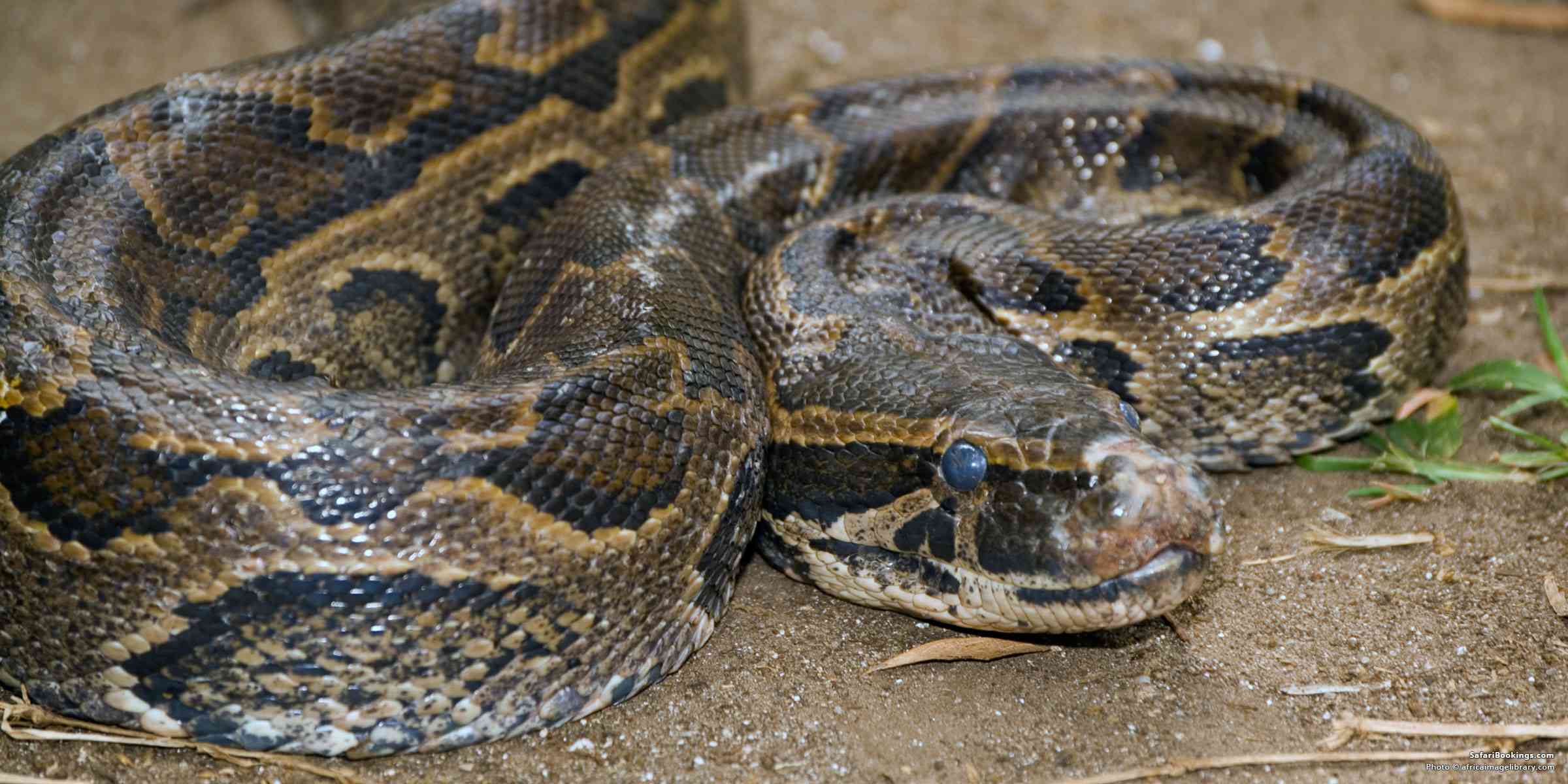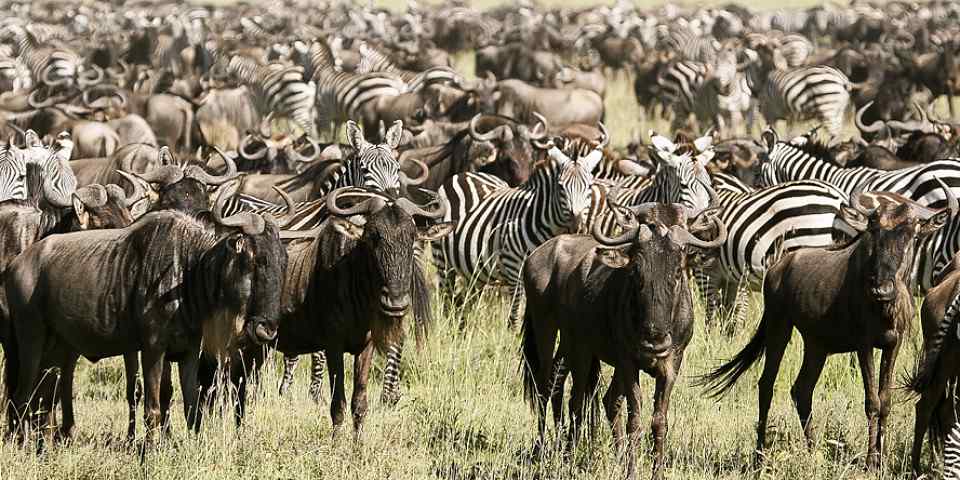
5 Fascinating Facts About the African Rock Python
 By Mike Unwin
By Mike Unwin
Mike is an award-winning wildlife writer, former editor of Travel Zambia magazine and author of the Bradt Guide to Southern African Wildlife.
Suffer from ophidiophobia – or fear of snakes? If you do, avoid the African rock python (Python sebae), Africa’s largest serpent. This python, spanning a length of up to six metres, is able to attack (and even start to swallow) a human being. Luckily, such incidents are extremely rare. Truth be told, this formidable reptile is one of the most fascinating creatures to meet on safari. Below are five fascinating facts about the African rock python.
- Like all pythons, this snake is non-venomous. It kills by constriction, ambushing and coiling around its prey, and tightening its coils every time the victim breathes out. Death happens by cardiac arrest, rather than by asphyxiation or crushing.
- African rock pythons feed on everything from birds and bats to medium-sized mammals. The larger python captures warthogs, bushbucks and even crocodiles, swallowing them whole. Poultry, dogs and goats are also at risk of attack. A huge meal takes months to digest.
- African rock pythons lay 20–100 hard-shelled, elongated eggs in an old animal burrow, termite mound or cave. The female coils around her clutch, protecting them from predators and possibly helping to incubate them, and guards the babies for up to two weeks after hatching.
- Pythons are among the most primitive of snakes in evolutionary terms. With two functioning lungs (more advanced snakes have only one) and small thorn-like projections on the lower body. These are known as pelvic spurs, which are presumed to be the vestiges of hind limbs.
- Scientists recognize two subspecies of the African rock python: Python sebae sebae (African rock python) and the slightly smaller Python sebae natalensis (Southern African rock python). The smaller Python sebae natalensis, is found in southern Tanzania and further southward, and is believed to be a completely separate species: Python natalensis.
Want To Go on an African Safari?
Click on the button below to compare African safaris offered by top-rated tour operators.
 By Mike Unwin
By Mike Unwin
Mike is an award-winning wildlife writer, former editor of Travel Zambia magazine and author of the Bradt Guide to Southern African Wildlife.
More About This AuthorAfrican Safari Tours
-
![3-Day Luxury Adventure Safari to Serengeti & Ngorongoro]()
3-Day Luxury Adventure Safari to Serengeti & Ngorongoro
$1,863 pp (USD)
Tanzania: Private tourLuxuryLodge
You Visit: Arusha (Start), Serengeti NP, Ngorongoro Crater, Arusha (End)

Full Package Adventures
5.0/5 – 222 Reviews
-
![11-Day Tanzania Safari with Zanzibar Beach Break]()
11-Day Tanzania Safari with Zanzibar Beach Break
$9,199 to $12,299 pp (USD)
Tanzania: Private tour
Mid-range Lodge & Tented CampYou Visit: Arusha (Start), Tarangire NP, Lake Manyara NP, Ngorongoro Crater, Serengeti NP, Zanzibar (End)

Wayfairer Travel
4.8/5 – 184 Reviews
-
![7-Day Tailor-Made Holiday and Tour in Uganda via Rwanda]()
7-Day Tailor-Made Holiday and Tour in Uganda via Rwanda
$2,581 pp (USD)
Rwanda & Uganda: Private tourBudgetLodge & Guest House
You Visit: Kigali (Start), Kisoro (Town), Bwindi Impenetrable NP (Gorillas), Queen Elizabeth NP, Lake Mburo NP, Entebbe Airport (End)

Home To Africa Tours and Travel
5.0/5 – 298 Reviews



 Subscribe to our newsletter
Subscribe to our newsletter
 Follow us on Instagram
Follow us on Instagram





